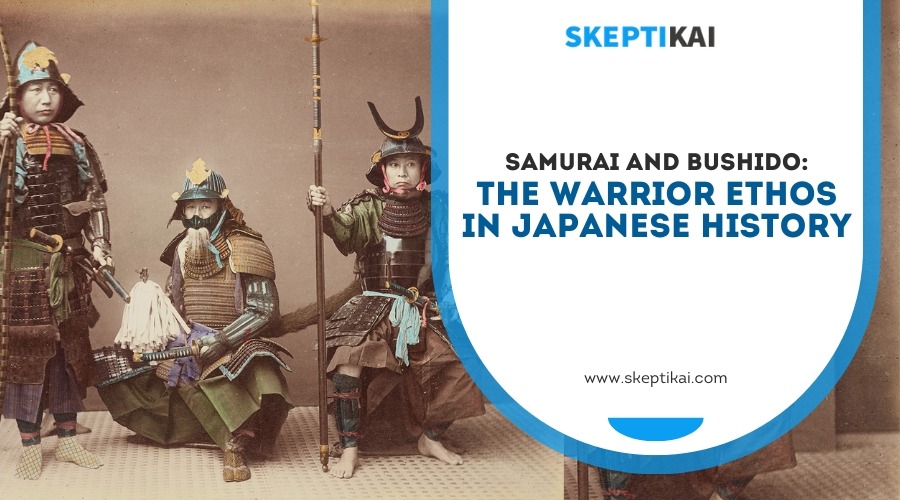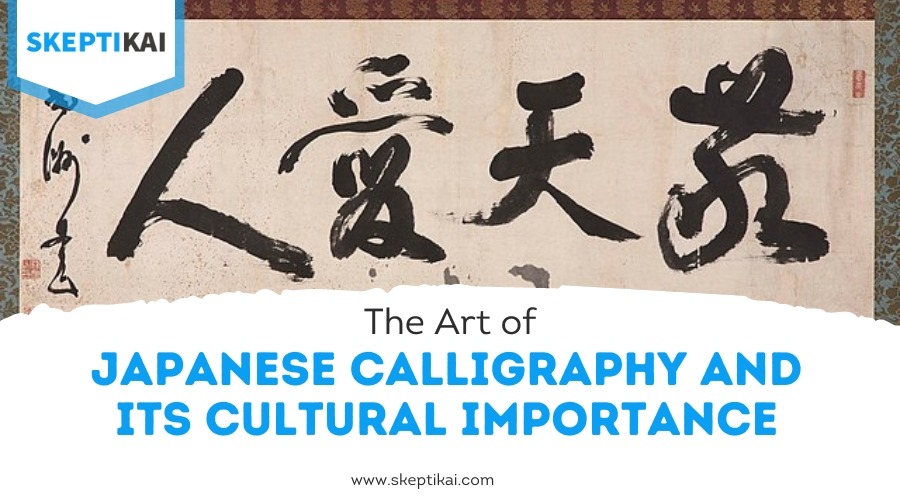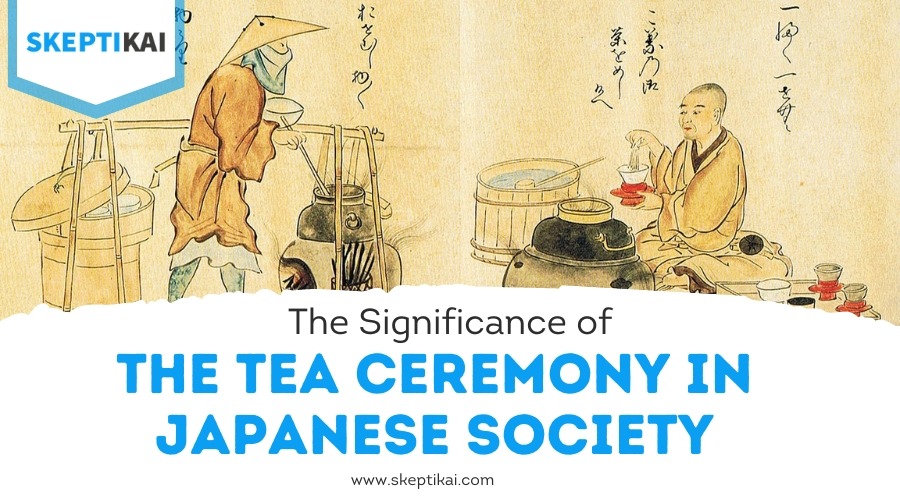How Did Zen Buddhism Help Shape Japanese Culture?
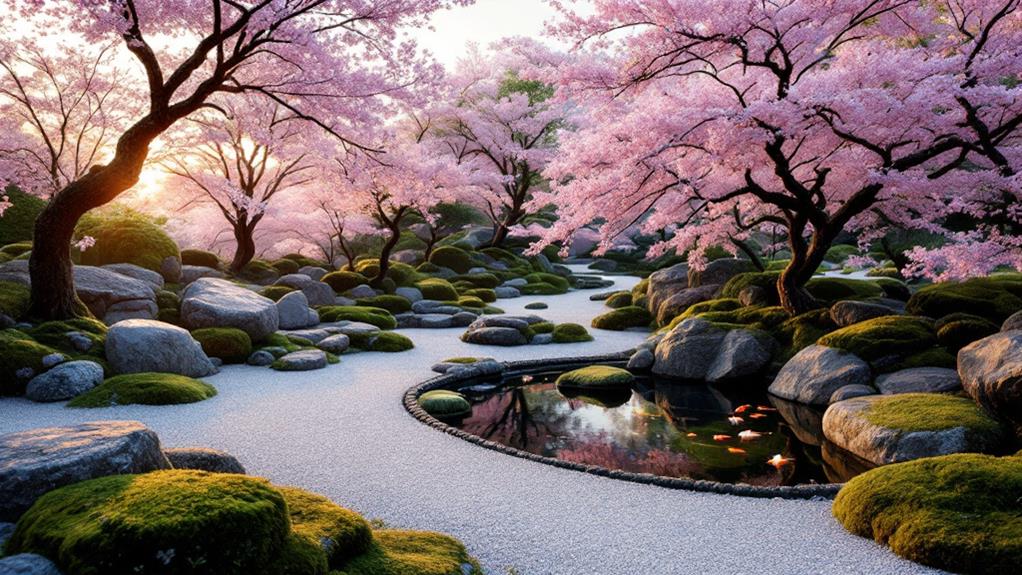
You'll find that Zen Buddhism has greatly shaped Japanese culture by influencing its art, architecture, literature, and daily practices. It introduced the concepts of simplicity and mindfulness, which have become core elements in Japanese aesthetics. Zen principles are evident in minimalist architecture and tranquil gardens, promoting peace and reflection. In literature, Zen inspired haiku and contemplative writing. Tea ceremonies highlight mindfulness and connection to the present moment, while martial arts emphasize discipline and inner harmony. Zen's influence on cuisine brings a focus on simplicity and seasonality. If you're intrigued, you'll undoubtedly uncover even more fascinating insights.
Arrival of Zen Buddhism in Japan
Zen Buddhism arrived in Japan during the late 12th century, when Japanese monks traveled to China and brought back the teachings. This expedition marked the beginning of a significant cultural exchange that shaped Japan's spiritual landscape. As you investigate Zen origins, consider how these teachings fit into the historical context of the time. Japan was seeking new spiritual paths, and Zen's focus on direct experience resonated with Japanese practitioners. The introduction of Zen Buddhism paralleled the already established Shinto practices, where kami worship and harmonious living with nature were integral to Japanese spirituality. Monastic traditions played a vital role in this exchange. Monks established Zen monasteries, which became centers of learning and spiritual development. These places fostered a disciplined, meditative lifestyle that attracted early practitioners. As you examine Zen texts, you'll notice they emphasized simplicity and the importance of personal experience for enlightenment.
The societal impact of Zen Buddhism was profound. It offered a new perspective on life's challenges, encouraging individuals to find peace within themselves. This spiritual development spread beyond the monasteries, influencing Japanese society at large. Early practitioners, through their dedication and teachings, helped integrate Zen into the cultural fabric. This integration laid the groundwork for Zen to become a distinctive part of Japanese identity.
Influence on Japanese Art
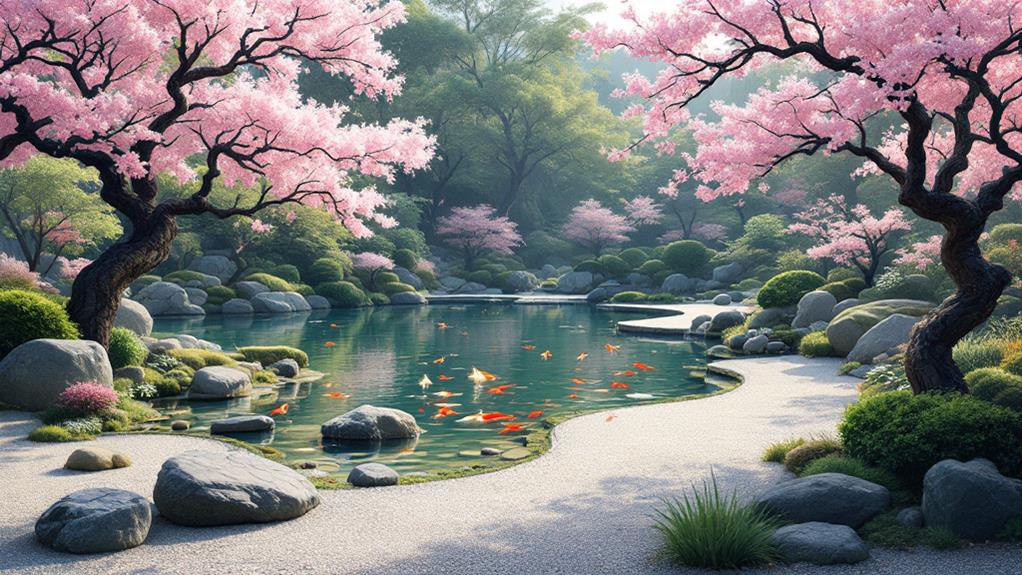
The brushstrokes of a Zen-influenced artist reveal a world where simplicity and mindfulness take center stage. As you investigate Japanese art, you'll notice how Zen Buddhism has profoundly shaped its essence. Ink wash paintings, known for their fluidity and depth, embody the simplicity principles cherished by Zen. These artworks often utilize minimalist aesthetics, where even a single stroke can convey profound meaning. Nature symbolism in these pieces connects with the themes of transience and mindfulness found in the tea ceremony, illustrating how deeply interconnected Japanese art forms are with these philosophies. Calligraphy techniques in Zen art emphasize expressive forms, allowing you to see the artist's spirit in each line. The process becomes a meditative practice, reflecting not only skill but inner tranquility. Nature symbolism is prevalent, with landscapes or simple flora rendered in ink, symbolizing the transient beauty of life. You'll find that spiritual themes often permeate these artworks, inviting contemplation and introspection.
Impact on Architecture

Harmony permeates the architecture influenced by Zen Buddhism, guiding the design of spaces that encourage peace and reflection. You'll notice that minimalist design is a core principle, eliminating excess to focus on fundamental elements. This approach results in spiritual aesthetics that invite introspection. When you step into a Zen-inspired space, you experience harmonious spaces that seamlessly blend with their surroundings.
Natural materials like wood, stone, and bamboo play a significant role in constructing these tranquil environments. They connect the indoors with the outdoors, fostering a sense of calm and natural beauty. The use of these materials not only improves the aesthetic appeal but also emphasizes simplicity and sustainability.
Functional simplicity is another hallmark of Zen architecture. Each element serves a purpose, avoiding unnecessary embellishments. You'll find that sacred geometry influences layout and design, creating balanced and peaceful spaces.
Zen architecture also embodies cultural fusion, integrating elements from different traditions while maintaining a unique identity. This blend creates environments where you feel grounded and serene. By embracing these principles, Zen-influenced architecture shapes spaces that are not only visually pleasing but also spiritually enriching, offering a sanctuary from the chaos of daily life.
Role in Tea Ceremonies
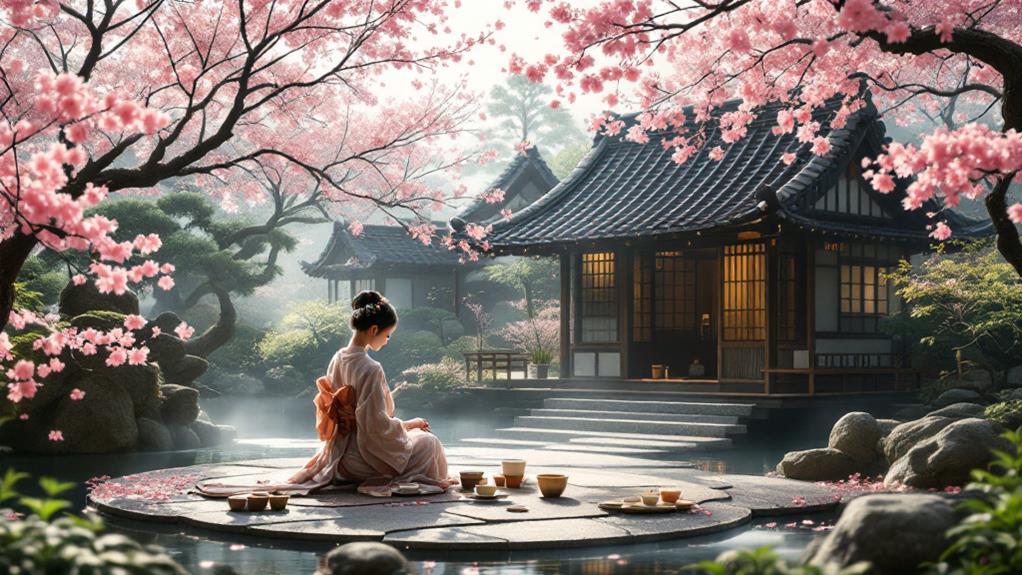
Steeped in tradition, tea ceremonies in Japan are profoundly influenced by Zen Buddhism, where every movement and gesture holds meaning. As you participate in a tea ceremony, you'll notice how everything, from the utensils to the tea itself, embodies tea aesthetics. This isn't just about visual beauty; it's about creating a harmonious environment that appeals to all senses. The tea room's simplicity reflects Zen's emphasis on minimalism, guiding you toward inner peace and contemplation.
In preparing tea, mindful preparation is key. You'll be encouraged to focus on each step, from boiling water to whisking matcha. This practice isn't rushed; it's deliberate, allowing you to engage fully with the present moment. The ceremony becomes a form of meditation, where the act of preparing and drinking tea fosters mindfulness and tranquility. You're not just drinking tea; you're experiencing a profound connection to the present.
Zen and Japanese Gardens
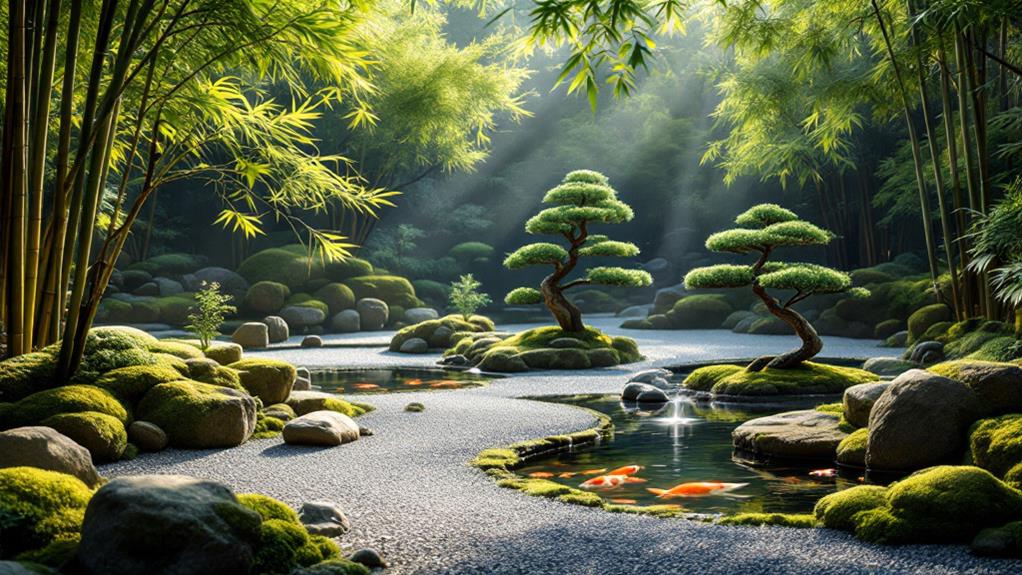
Imagine stepping into a Japanese garden, where every element is a reflection of Zen Buddhism's influence. The rock arrangements aren't just decorative; they embody simplicity principles and represent mountains or rivers. As you walk through, you notice how the garden welcomes seasonal changes, with every season offering a different view and insight into nature's cycles. This constant transformation invites you to reflect on the impermanence of life, a core teaching in Zen.
The tranquility aesthetics of the garden create a peaceful environment, encouraging you to pause and find stillness within. The carefully placed symbolic elements, like a solitary stone or a flowing stream, prompt contemplation and introspection. These aren't randomly chosen; they mirror nature reflections, providing a deeper connection to the world around you.
Simplicity is a guiding principle here. The garden's design avoids excess, focusing instead on fundamental elements that evoke a sense of calm and order. This minimalist approach invites you to appreciate the beauty in simplicity and find harmony in the balance of natural and man-made elements. Zen gardens aren't just spaces; they're experiences, providing a sanctuary for the mind and spirit.
Contribution to Martial Arts
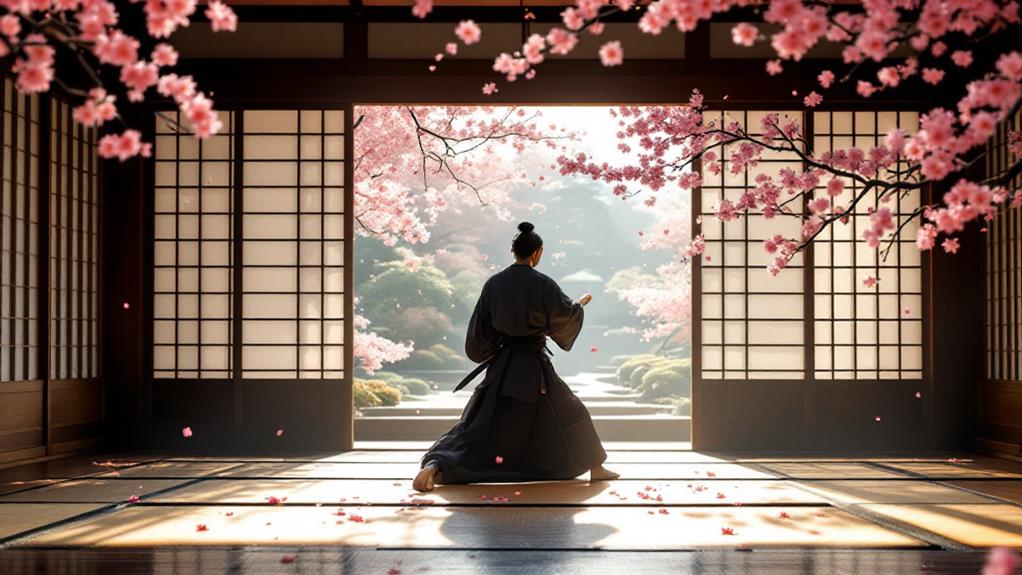
Zen Buddhism heavily influences the development and practice of many martial arts, emphasizing discipline, mindfulness, and self-awareness. When you engage in martial arts like Kendo or Karate, Zen principles guide you beyond mere physical prowess. Mindfulness training becomes crucial, teaching you to remain present and focused, even under pressure. This practice guarantees that each movement is deliberate and purposeful. You learn to clear your mind of distractions, allowing your reactions to become instinctive and fluid.
Martial philosophy in Zen emphasizes the importance of harmony and balance, both within yourself and with your surroundings. It's not just about defeating an opponent but understanding the deeper aspects of conflict and resolution. You realize that true mastery involves controlling your inner self, conquering fear and anger, and achieving a state of inner peace.
Through Zen, martial arts become a path of personal growth. You're encouraged to reflect on your actions and motivations, fostering continuous self-improvement. Zen's influence extends beyond the dojo, impacting how you interact with the world. By integrating Zen's teachings, martial arts transform into a holistic practice, shaping not only your physical abilities but also your character and spirit.
Zen's Literary Expressions
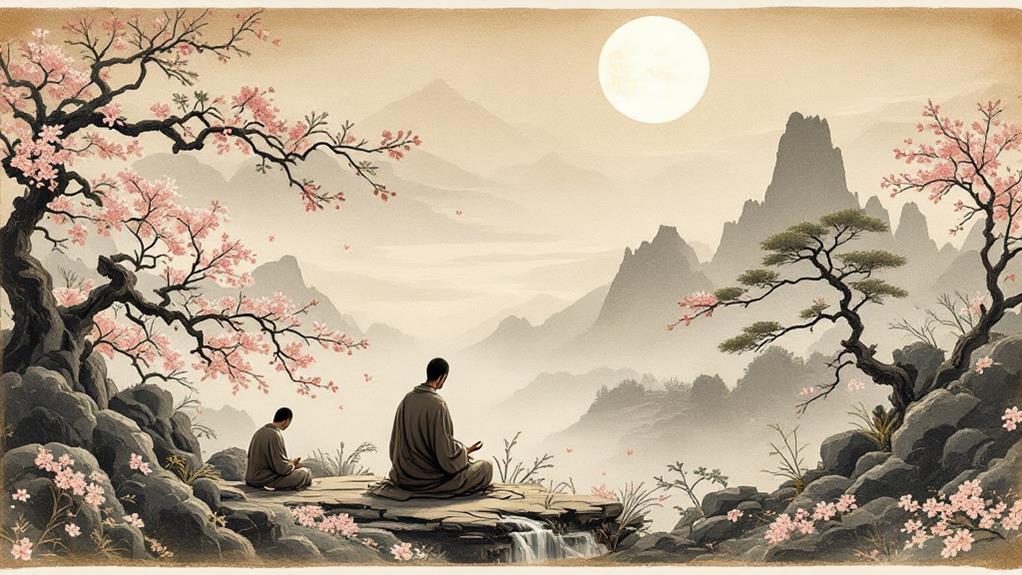
In the domain of literature, Zen Buddhism finds expression through concise and profound works that capture its essence. You'll notice how haiku poetry, with its zen aesthetics, embodies literary minimalism. Haiku distills profound insights into just three lines, often drawing on nature symbolism to convey deep spiritual narratives. The simplicity and beauty of haiku invite you into a space of contemplative writing, where each word is carefully chosen.
Another fascinating element is mindfulness literature. Here, you engage with texts that encourage living in the present moment. These works often echo the teachings of Zen by focusing on the immediate experience, helping you cultivate a mindful approach to everyday life. The practice of being present is woven throughout these spiritual narratives, offering a peaceful respite from the chaos of modern life.
Lastly, koan reflections are an intriguing aspect of Zen's literary sphere. These paradoxical questions or statements challenge your usual way of thinking, prompting you to investigate beyond conventional logic. Through koans, you set out on a path of introspection and self-discovery, embracing Zen's enigmatic wisdom.
Here's a quick guide for diving into Zen's literary expressions:
- Read haiku poetry.
- Delve into mindfulness literature.
- Contemplate koan reflections.
Influence on Japanese Cuisine
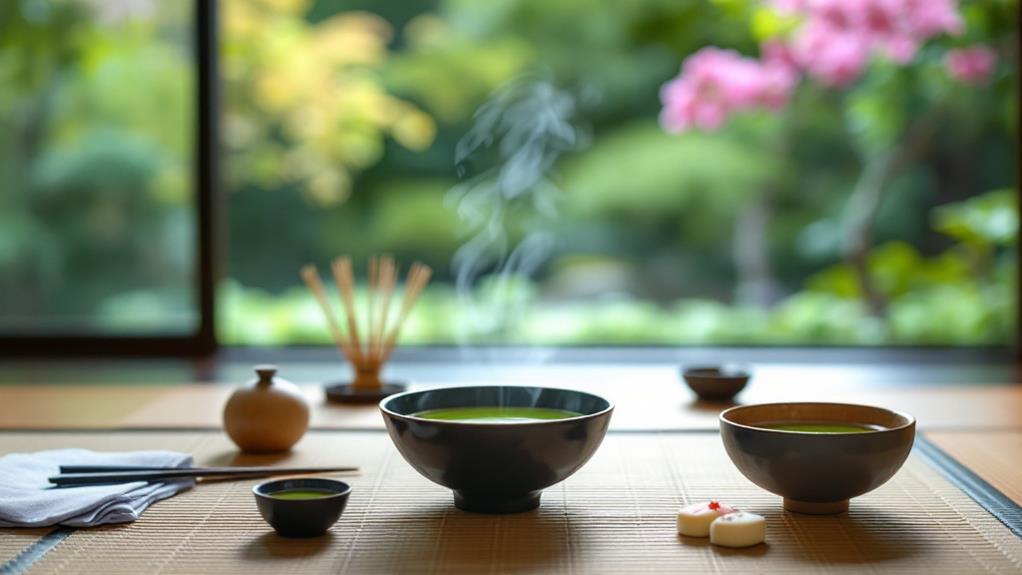
Japanese cuisine, deeply influenced by Zen Buddhism, emphasizes simplicity, seasonality, and mindfulness. When you prepare a traditional Japanese meal, you're engaging with Zen aesthetics that highlight the beauty in simplicity. You'll notice the use of seasonal ingredients, which not only amplifies the umami flavors but also guarantees that the food is at its freshest and most nutritious. This approach aligns with the Zen principle of living in harmony with nature.
In mindful cooking, you focus on each step of the process, from selecting ingredients to the final act of eating. This mindfulness promotes an appreciation for the harmony and balance found in Japanese dishes. Think of the minimalist presentation of sushi or sashimi, where each element is carefully arranged to create a sense of tranquility on the plate. It's not just about the visual appeal; it's about creating an experience that nourishes both body and spirit.
Zen Meditation Practices
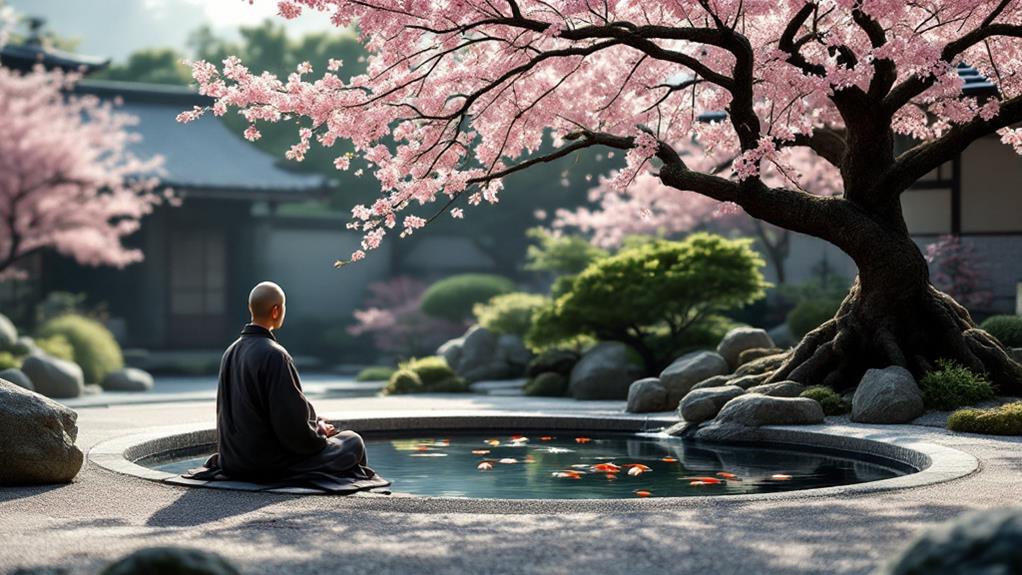
Imagine settling into a quiet space, letting go of distractions, and focusing solely on your breath—this is the essence of Zen meditation. It's a practice that invites you to investigate mindfulness techniques, fostering a deeper connection with yourself and your surroundings. By embracing breath awareness, you'll notice the gentle rise and fall of your chest, anchoring your mind in the present moment.
Zen meditation, known as Zazen, offers a straightforward approach to mindfulness. Here's how you can incorporate it into your routine:
- Posture Matters: Sit comfortably, keeping your back straight and your hands resting in your lap. This posture promotes alertness and helps maintain focus.
- Breath Awareness: Pay attention to your breathing. Notice each inhale and exhale without trying to control them. This simple act can ground you, reducing stress and distractions.
- Mindfulness Techniques: Let thoughts come and go like clouds passing in the sky. When your mind wanders, gently bring your focus back to your breath.
Zen's Legacy in Modern Japan
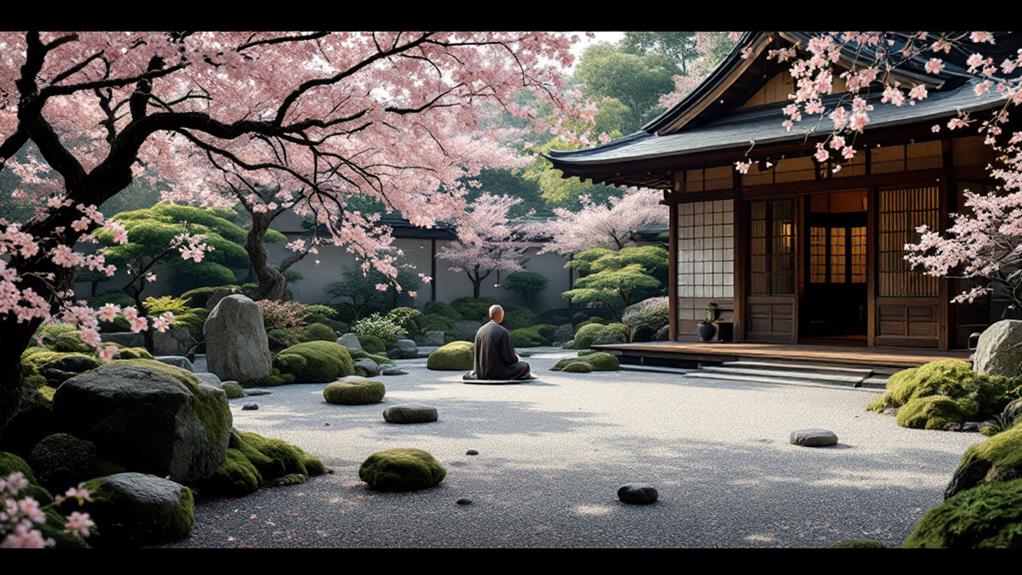
Zen's influence permeates modern Japan, shaping both cultural practices and everyday life. You can see Zen philosophy reflected in Japan's commitment to simplicity and harmony. It teaches you to appreciate the present moment through Zen mindfulness, helping you find peace amid the chaos of daily life. When you engage with Zen rituals like the tea ceremony, it's not just about drinking tea; it's a practice steeped in Zen symbolism and Zen aesthetics, emphasizing balance and tranquility.
As you investigate Japanese art and design, you'll notice the understated beauty of Zen aesthetics. This approach values minimalism and the beauty of natural imperfections, seen in everything from architecture to garden design. Zen teachings encourage you to live ethically, aligning your actions with the greater good, which is a core part of Zen ethics.
In modern Japanese society, Zen community practices foster a sense of belonging and shared purpose. Regardless of group meditation sessions or collaborative art projects, these activities nurture connections. Through Zen's legacy, you're invited to accept a life of mindfulness, ethical living, and a deep connection to nature and community, enriching your everyday experiences.
